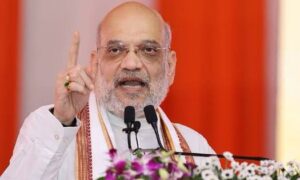
The Delhi High Court on Friday held that alimony cannot be awarded to a spouse who is “financially self-sufficient”.
A division bench of Justices Anil Kshetarpal and Harish Vaidyanathan Shankar upheld a family court’s August 2023 decision denying permanent alimony to a woman employed as a senior officer in the Indian Railways Traffic Service.
The court also upheld the family court’s decision to grant divorce to her husband, a lawyer, on the grounds of cruelty.
In its judgement, the Delhi High Court said that “it is a settled principle that permanent alimony is intended as a measure of social justice and not as a tool for enrichment or equalising the financial status of two capable individuals.”
The court stressed that an applicant for alimony must demonstrate a real need for financial support, and that judicial discretion must be exercised on the basis of evidence and relevant circumstances.
The couple, both of whom had been previously divorced, were married in January 2010 but separated within 14 months. The husband filed for divorce citing mental and physical cruelty, including abusive language, humiliating text messages and denial of conjugal rights.
The wife denied the allegations and accused him as well of cruelty. She alleged that he had married her only to “misuse her official position as a senior officer of the Indian Railways to secure his own appointment as a panel lawyer”.
However, the family court granted the divorce in August 2023, finding that the wife had used degrading language against the husband and his mother, including accusations that the husband was an illegitimate child, which amounted to mental cruelty.
The court also noted that the wife had demanded Rs 50 lakhs in financial settlement for consenting to divorce, as stated in her affidavit and confirmed during cross-examination. The court rejected this demand, observing that it suggested her willingness to dissolve the marriage was motivated by financial gain rather than a desire for reconciliation.
The High Court on Friday upheld these findings, stating that resistance to divorce predicated on payment of a substantial sum pointed to monetary motives, not emotional or marital commitment.
“The inference drawn by the learned Family Court that the Appellant‟s approach bore a clear financial dimension cannot be said to be unfounded or unreasonable; rather, it was a logical conclusion based on the evidence before it,” the High Court said.
📰 Crime Today News is proudly sponsored by DRYFRUIT & CO – A Brand by eFabby Global LLC
Design & Developed by Yes Mom Hosting






